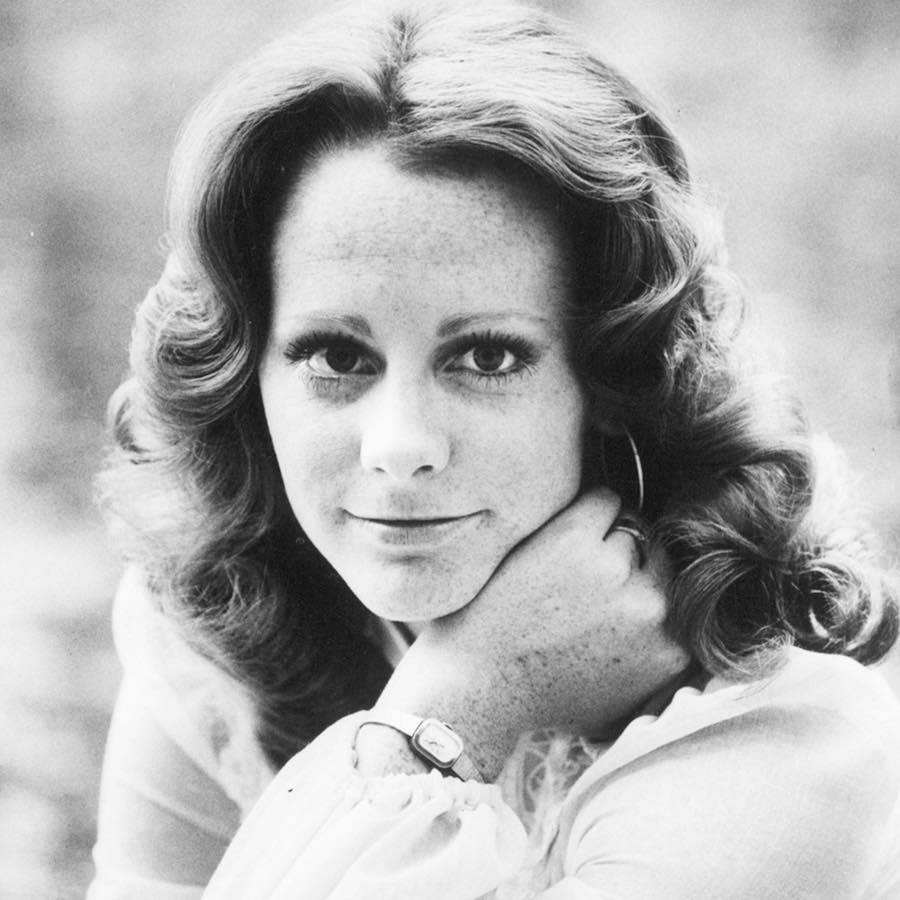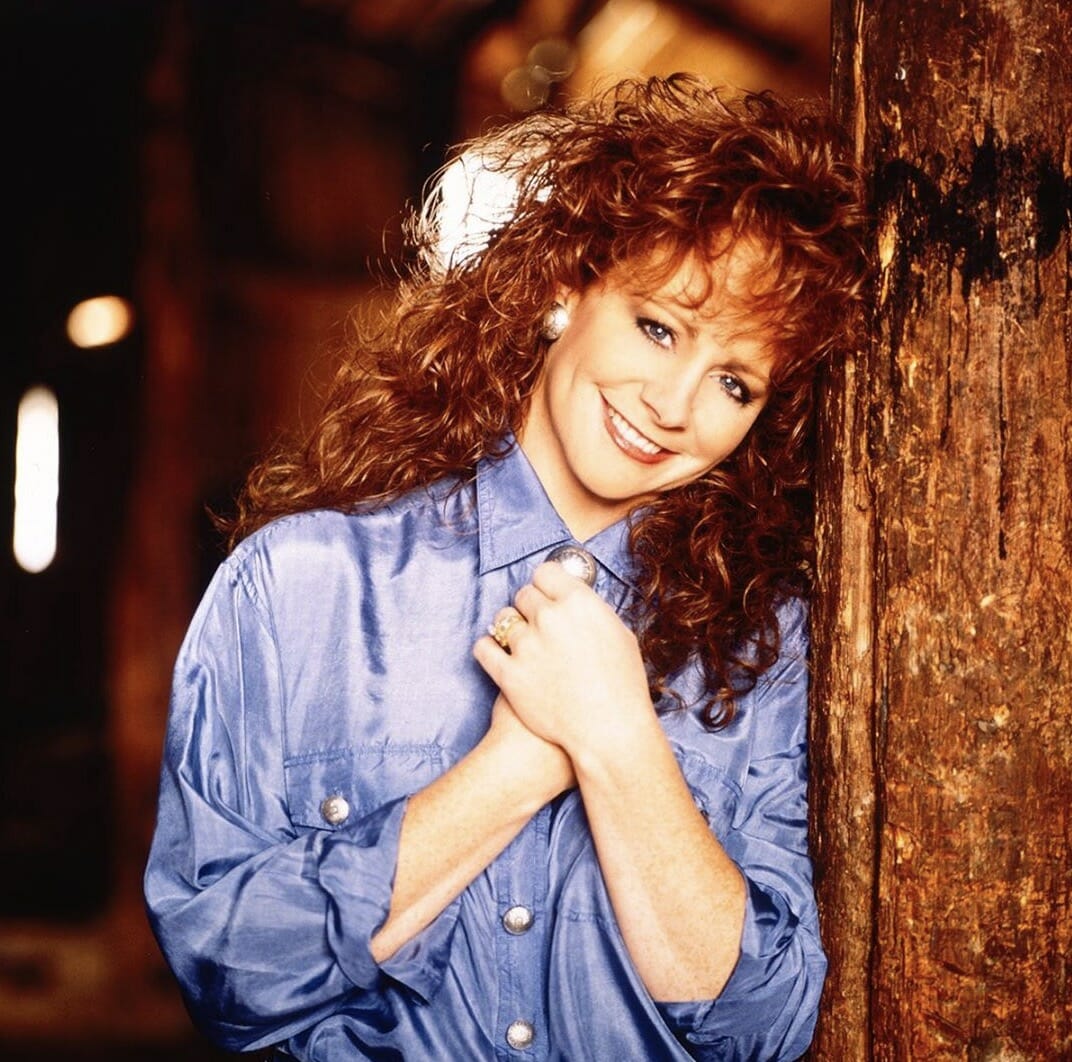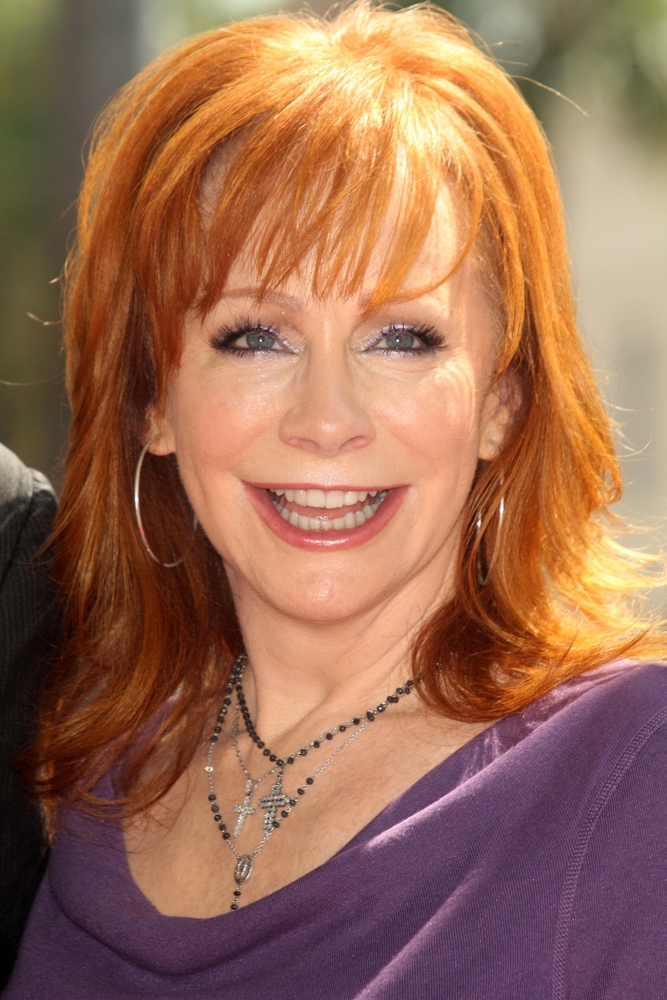Today, the wonderful Reba McEntire is 69 years old and she truly deserves all the praise she can get. Personally, it feels like she has been around all my life and I still listen to her, several times a week.
But everything hasn’t been milk and honey in Reba’s life.
Born to ride and work the land
Reba McEntire wasn’t just born country — she lived it.
The legendary country queen was born in McAlester, Oklahoma, in 1955. But she grew up on her family’s massive 8,000-acre ranch in tiny Chockie, Atoka County. Reba’s childhood was all about hard work, determination, and western traditions.
Life on the ranch didn’t allow for much downtime, and even as a little girl, Reba was expected to pull her weight.
By the time she was just five years old, Reba was already driving her dad’s truck through fields of cattle. Well, steering might be the better word since she was too small to reach the pedals. Her dad, Clark McEntire, would prop her up with a 50-pound feed sack, shift the truck into ”granny gear,” and let her take the wheel. And this wasn’t just a fun one-off moment — it was part of daily life.
The legendary country singer grew up in a family steeped in rodeo history. Her granddad, John Wesley McEntire, was a world-champion steer roper in 1934, and her dad, Clark, followed in his footsteps, winning the title three times.
Her childhood wasn’t glamorous
But Clark McEntire wasn’t just a rodeo legend — he was old-school when it came to parenting. Reba’s father didn’t believe in handing out hugs or saying “I love you” to his kids. His way of showing love was through high expectations and teaching them the value of hard work.
Reba later admitted in her autobiography, For My Broken Heart, “When we were growing up, I used to regret that Daddy never told us he loved us.”
Her childhood wasn’t glamorous. The McEntire children — Alice, Pake, Reba, and Susie — grew up in a modest gray house with just one bathroom for all six family members.
”We weren’t no wealthy West Texas people or nothin’. It’s mostly rocky, mountain country, but enough to run a few steers on,” Reba recalled.
Even though Reba mastered and appreciated farm life from an early age, she always had another dream tugging at her heart — she loved to sing. Her mother, Jacqueline McEntire, had once dreamed of becoming a country singer herself but instead dedicated her life to being a public school teacher, librarian, and secretary.
”My mama, they used to say she coulda been as big as Patsy Cline if she’d had any breaks, but she was teaching’ school by the time she was 16 or 17,” Reba once said.
She got her big voice from her dad
When Reba’s father struggled to show affection, Jacqueline was warm and nurturing. Music became a family bond, much thanks to their mother’s encouragement. On long car rides to her father’s rodeo events, Jacqueline would teach her kids to sing in harmony, turning the backseat into a mini choir.
It was during these moments that Reba’s passion for singing truly blossomed.
Reba always said her mama taught her to sing, and all her music roots come from her. As for the big voice, she got that from her dad. Growing up on a ranch, he had to shout across the fields to call the cattle, and that power in his voice passed down to Reba.
”I’ve always been loud. Mama said that when all three of us’d sing, she could always hear me over Pake and Susie. They’d always say, ’Reba , shut up. Back up. Way bay.’ That’s always been my history,” she told Chicago Tribune.
Reba’s journey into music began early, and her talent shone even as a young girl. In first grade, the blazing redhead stood in front of her classmates at an elementary school Christmas pageant and sang “Away in a Manger,” captivating everyone with her sweet voice. By fifth grade, she had joined the 4-H club, where she won first place in the Junior Act Division by singing “My Sweet Little Alice Blue Gown.” It was clear that Reba’s love for performing was already blooming.
The McEntire family band
Reba early years in life wasn’t just about music — she lived a full, active life. She played basketball, ran track, and even spent summers at basketball camp. At home, she learned to play the piano and guitar, while her passion for the rodeo led her to train as a barrel racer.
By high school, Reba’s musical ambitions had become a family affair. Along with her siblings Pake and Susie, she formed a trio called The Singing McEntires. Their mom, Jacqueline, was always quick to offer feedback, especially if they hit a wrong note.
“Anytime anybody needed an opinion of who’s off — Susie’s on my part, I’m on Susie’s part — Mama would come in with her spatula after she was frying potatoes,” McEntire recalled, mimicking her mother’s pointing gesture with the utensil. “She would say, ‘OK, Reba, you’re on Susie’s part. Sing it again.’ We’d sing it, and she’d say, ‘Oh, that’s perfect,’ and she’d go back in and keep frying potatoes.”
The siblings often performed together and soon caught the attention of local audiences. In 1971, they released a single, “The Ballad of John McEntire,” paying tribute to their grandfather, a celebrated rodeo star. Although the song was only distributed regionally, it marked an important milestone in Reba’s early music career — one that hinted at the superstar she would become.
Kids barely out of puberty
The Singing McEntires were more than just a family trio — they were a local sensation. With Reba, Pake, and Susie leading the charge, the group began playing at small-town events and dances. As their talent grew, so did their reach. They eventually formed a band called The Kiowa High School Cowboy Band, taking their music to dance halls and even bars in Oklahoma City. Reba later joked, ”We were just kids barely out of puberty, staying up until sunrise after some of those shows.”
But as the siblings grew older, their paths began to diverge.
When her brother graduated high school, the band dissolved. Reba, meanwhile, graduated from Kiowa High School in 1973 and headed to Southeastern Oklahoma State University, majoring in elementary education with a minor in music. Even during college, she balanced her studies with her responsibilities on the family ranch, proving her grit and determination.
In 1974, a unique opportunity arose. Reba’s father encouraged her to sing ”The Star-Spangled Banner” at the National Finals Rodeo in Oklahoma City. Nervous but determined, she reached out to family friend and rodeo announcer Clem McSpadden, who helped secure the gig. Little did she know, that performance would change everything.
A defining moment
Country music legend Red Steagall happened to be in the audience that night, and Reba’s powerful voice stopped him in his tracks. After hearing her sing, he invited her and her family to a hotel party during the rodeo. At the gathering, Reba performed an a cappella rendition of Dolly Parton’s “Joshua.” It was a defining moment.
Reba’s mother, Jacqueline, seized the opportunity to ask Steagall for help. She wanted all three of her children to get a chance at stardom. But Steagall’s response was clear: “I can’t take all three. But I could take Reba. She’s got something a little different.”
In March 1975, Reba and her mother packed up and headed to Nashville to record a demo tape. The journey wasn’t without hesitation. Reba admitted she made excuse after excuse to delay the trip. Finally, her mother pulled the car over and looked her daughter in the eye. “Now, Reba,” Jacqueline said gently but firmly, “if you don’t want to go to Nashville, we don’t have to do this. But I’m living all my dreams through you.”
Those words hit Reba hard. She realized this wasn’t just about her dreams—it was about her mother’s sacrifices and unwavering belief in her. With newfound determination, they drove on to Nashville, not knowing they were about to begin a journey that would change country music forever.
A rocky start
After recording her demo tape, Reba’s fate hung in the balance. Glenn Keener, a producer for PolyGram/Mercury Records, heard the tape and saw something special. Impressed by her voice, he decided to take a chance and brought the recording to PolyGram’s headquarters in Chicago. But there was a catch — Keener was only allowed to sign one female artist.
In that emotional moment, Keener held two demo tapes in his hands: Reba’s and another woman’s. After a pause, he made his choice. ”He looked at the two tapes in his hand and handed ’em mine,” Reba later recalled to Entertainment Weekly.

After a rocky start with several low-charting singles, Reba gained momentum in 1978 with her first top 20 hit, ”I’d Really Love to See You Tonight.” But it wasn’t until 1984, when McEntire signed with MCA Records, that her career truly exploded. Her breakthrough album My Kind of Country marked a shift toward traditional country sounds, earning her the title of Female Vocalist of the Year and solidifying her place as a country music legend. By 1986, McEntire was a household name, winning her first Grammy for ”Whoever’s in New England,” which topped the charts.
McEntire’s life was shattered after a plane crash
In the late 1980s, Reba McEntire’s career took a significant turn as her touring schedule became busier, and she and her band began flying by private planes to avoid long bus trips. Tragically, in March 1991, McEntire’s life was shattered when a plane crash took the lives of eight members of her band an d two pilots. The accident deeply affected McEntire, who later dedicated her album For My Broken Heart to those lost.
Despite the tragedy, McEntire’s career flourished throughout the 1990s. She also explored acting, starring in a TV series and releasing the hit ”I’m a Survivor.”
After taking a few years off, Reba McEntire made a triumphant return to music in 2003 with her album Room to Breathe. The album produced a number-one hit with “Somebody” and was followed by a successful tour. Her 2007 album Reba: Duets topped the charts, showcasing her ability to blend genres with a variety of artists.
Reba’s heartfelt tribute
In, 2014 Reba’s father passed away after complications from a stroke. To honor him, she channeled her grief into the music video for ”Just Like Them Horses,” a heartfelt song that gave a deeply personal glimpse into the pain of losing someone so important.
This wasn’t the first time Reba dedicated a song to her father. In 1979, she wrote the song ”Daddy” – a tribute to Clark and the cowboy and rodeo life he cherished.
So, while Reba’s mother laid the foundation for much of her musical success, she was also very much a daddy’s girl.
”I have a lot of daddy in me. I have a lot of his drive and his determination to succeed, but also, I’m a terrible communicator,” she shared with The Tennessean in 1994.

After all her successes and tragedies, there was one thing that made Reba McEntire consider stepping away from her career. In an interview on Today with Hoda & Jenna, the musician – now widely regarded as the Queen of Country – candidly shared how she considered quitting music following her mother Jacqueline’s passing from cancer in March 2020.
McEntire, 69, recounted a moment when she and her sister Susie were going through their parents’ belongings after Jacqueline’s death. It was during this introspective period that she contemplated her future as a singer.
She recalled: “I was going through pictures. I said, ‘I just don’t think I’m gonna do this anymore.’ She said, ‘What?’ I said, ‘Sing,’” she explained. “I said, ‘I always did it for Mama.’ She said, ‘Oh, you’ll get it back.’ I did.”
Reba is about faith, family and culture
Luckily, Reba has continued to sing. And she remains a staple in country music, while also expanding her brand through acting, business ventures, and philanthropy
Even with millions in the bank and the freedom to do whatever she wants, Reba McEntire has never forgotten where she came from. In 2023, she made a heartfelt return to her hometown in Atoka, and partnered with the Choctaw Nation to open Reba’s Place — a charming restaurant and gathering spot that’s breathing new life into the town.
”Reba is about faith, she is about family, she is about culture,” said Gary Batton, chief of the Choctaw Nation, the third-largest tribe in the United States.
With a dash of her unique style, the place showcases her music, memorabilia, and plenty of Southern comfort food. But it’s not just about business for Reba — it’s her way of giving back to the community that shaped her.
By creating jobs and bringing people together, Reba is helping Atoka thrive, all while keeping her heart right where it belongs.
Full circle
For me, Reba McEntire’s career truly came full circle when she performed “The Star-Spangled Banner” at Super Bowl LVIII in 2024. It was a poignant moment, bringing her back to where it all began—when her dad pushed her to take that first big step, singing the national anthem at the National Finals Rodeo in Oklahoma City in 1974. Little did she know, that performance would mark the start of a remarkable, legendary journey.
Fast forward to that Super Bowl stage, and it was like everything had come together. From a small rodeo in Oklahoma to one of the world’s biggest events, Reba’s journey is a true testament to where passion and hard work can take you. A full-circle moment that was as emotional as it was incredible.

With 24 No. 1 hits, over 90 million albums sold, and an incredible array of awards to her name, Reba McEntire has etched her name into the history of country music.
The Oklahoma native is proof that you can come from humble beginnings and still take the world by storm – share her story on Facebook if you agree!

